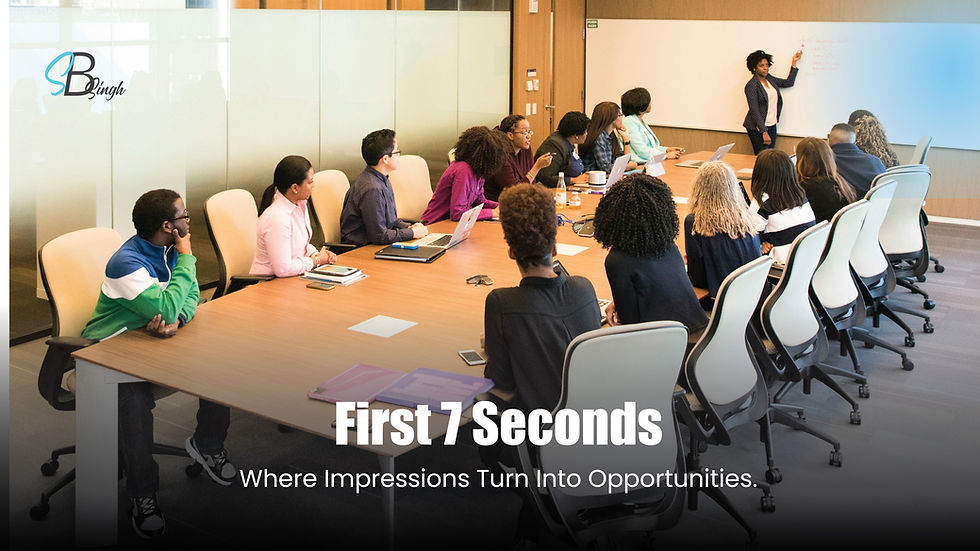Negotiation as an Art
- shashibhushanmb
- Jun 2
- 4 min read

Have you ever tried convincing your friend to watch your favourite movie instead of theirs? Or did you ask your boss for a raise? Whether it’s buying a car, discussing your salary, or even deciding where to go for dinner, negotiation is a part of our daily lives. But most people think negotiation is only for businesspeople, lawyers, or politicians. The truth is, we all negotiate every day—and doing it well is a powerful life skill.
But here’s the interesting part: negotiation is not just a skill—it’s an art.
Why is Negotiation an Art?
Think of negotiation like painting. You don’t just slap paint on a canvas and hope for a masterpiece. You need patience, creativity, timing, and understanding of the materials. Similarly, in negotiation, you need more than just facts or logic. You need empathy, listening, timing, tone, and sometimes, even silence.
The art of negotiation is important because it enables individuals to reach mutually beneficial outcomes, resolve conflicts peacefully, and build strong, lasting relationships. In both personal and professional settings, effective negotiation allows people to express their needs clearly, understand others’ perspectives, and find common ground. It promotes dialogue over confrontation, helping to avoid misunderstandings and manage disagreements constructively. In the business world, negotiation is a crucial skill for securing fair deals, forming partnerships, and advancing careers. It also boosts confidence and communication skills, empowering individuals to advocate for themselves and others. Ultimately, mastering the art of negotiation leads to better decision-making, fosters collaboration, and ensures that interactions are grounded in respect and fairness.
Just like an artist studies human emotion and expression, a good negotiator reads people, understands needs, and adapts to situations.

Elements of the Art of Negotiation
1. Listening More Than You Speak
This might sound strange, but the best negotiators are the best listeners. When you listen carefully, you understand what the other person really wants, not just what they say they want.
Imagine you're buying a second-hand bicycle. The seller says the price is non-negotiable. But when you listen closely, you learn they're moving to a different city and need to sell quickly. That gives you room to negotiate.
Tip: Ask open-ended questions like “What’s most important to you in this deal?” or “Is there any flexibility here?”
2. Empathy is Your Superpower
Empathy means putting yourself in the other person’s shoes. Why are they saying “no”? What might be worrying them? If you can understand their feelings and motivations, you can adjust your approach.
Let’s say you're asking for flexible work hours. Instead of demanding it, you could say: "I understand the team needs to be available during certain hours. I’m wondering if we could find a schedule that works for both of us."
Tip: People are more likely to agree when they feel heard and respected.
3. Be Prepared, But Flexible
Before any negotiation, do your homework. Know what you want, what the other side might want, and what options exist. But also be ready to adapt. Sometimes things change in the middle of the conversation.
Think of it like a dance. You may know the steps, but you still need to adjust to your partner’s moves.
Prepare your “BATNA” – Best Alternative To a Negotiated Agreement. This is your backup plan if the negotiation doesn’t go as hoped.
4. Stay Calm and Patient
Negotiations can get tense. People raise their voices. Emotions rise. But losing your cool won’t help. In fact, staying calm gives you the upper hand.
Patience is especially important. Sometimes, silence can be more powerful than words. If you wait, the other person might fill the silence—and give you helpful information.
Tip: Take a deep breath if you feel stressed. Even pausing for a few seconds before replying can help you respond more thoughtfully.
5. Aim for Win-Win Outcomes
Many people think negotiation is about winning. But the best negotiators don’t aim to “beat” the other person. Instead, they look for ways both sides can walk away satisfied.
This builds long-term trust and relationships.
For example, let’s say you’re selling handmade crafts. A customer wants a discount. Instead of simply lowering the price, you might offer a bundle deal or free shipping. That way, they feel they’ve won something, and so do you.
Tip: Think creatively. Sometimes a small compromise can lead to a big agreement.
Negotiation isn’t about being aggressive, clever, or manipulative. It’s about being human understanding others, expressing yourself, and working together to solve problems. When done right, it can strengthen relationships, open doors, and even change lives.
he next time you find yourself in a challenging conversation, stay calm. Pause. Listen carefully. Reflect. And remember — you're not just resolving an issue; you're thoughtfully crafting a masterpiece, one deliberate stroke at a time.
Ready to master the art of negotiation? Get in touch to learn how we can help you elevate your communication skills. https://www.shashibsingh.com/



Comments